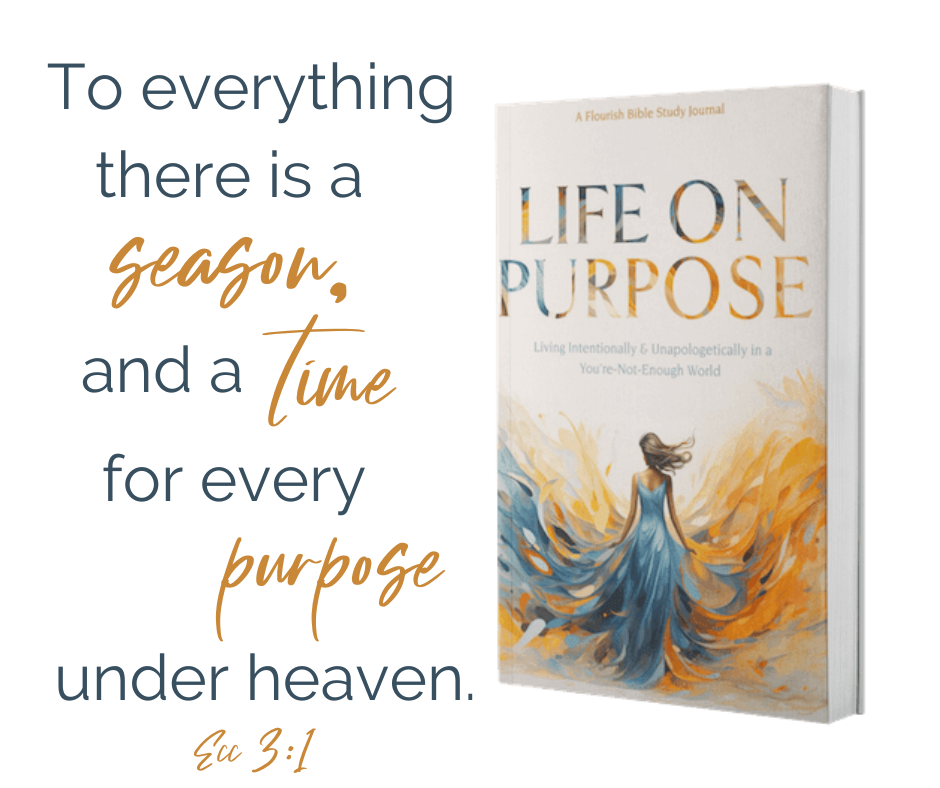“Hey Aunt Allie.”
“Come on in before that sun cooks you,” she’d say.
Aunt Allie is how most folks addressed my grandma. The moment they stepped foot into the foyer and before they could latch the storm door shut to keep out the summer Oklahoma heat, Grandma called out in her deep southern drawl.
“Jeet?”
A simple one-word question, asking her guest if they’d eaten.
“No ma’am,” they’d say.
Everyone knew you came to Aunt Allie and Uncle Cecil’s because you were hungry for food for your belly or food for your soul.
“Well, get in here, and I’ll fix you somethin’ to eat.”
Grandma would turn to me and with a wink, say, “Amylyn, don’t just sit there. Go get a sodie pop from the icebox.”
Off I’d scurry to the old Westinghouse out on the back porch, proud to be helping my grandma because folks loved her. You could see it in the way they always planted a kiss on her cheek when they were comin’ and goin’ and the way they stayed for hours just to sit a spell.
Now I’m fairly certain based on the stories I heard around the kitchen table that my grandparents knew hunger on a first-name basis. Living through world wars and the Dust Bowl, food and Jesus is what kept folks going in times of trouble.
By today’s standards, my grandparents would be considered low income, but that never stopped them from sharing everything they had.
When you walked in the backdoor, it was guaranteed you’d be served a fried bologna sandwich stacked high with thick-cut tomato slices and crisp lettuce from the garden on toasted sandwich bread with a generous dollop of tangy mayonnaise.
Then to help beat the sweltering heat, she’d pull out her old gallon glass jar from the refrigerator and add a few slices of chilled cantaloupe to her pink Depression era glass plate.
My job was to fill a glass to the brim with ice cubes, pour the sodie pop, and serve it with one of Grandma’s hand-embroidered napkins. She wanted folks to know they were welcome, and she served this simple meal as if for royalty.
As soon as Grandma put the plate down in front of her guest, she’d wipe her hands on her apron, pull up a chair, and start asking about family, work, and how school classes were going. Grandma knew tidbits about everybody because she cared to ask.
Time around the table wasn’t just for eating and catching up on life’s events. There was always time for laughter and a little competition, especially if you liked dominos.
None of us could ever figure out how she did it, but she was so good at the game. Before you ever laid a single domino down on the vinyl checkered tablecloth, she’d say, “Well, are you goin’ to lay down the double-five?”
Right then, it was game over. You might as well turn over your hand and give her the points.
What Grandma shared through food and conversation brought folks together.
The kitchen was always hopping with activity. It was a time of joy and laughter as the ivories swished across the tablecloth with Grandma Allie filling everyone’s bellies.
In typical southern tradition, the menfolk stayed outside with Grandpa Cecil who’d be tinkering on a lawnmower engine. The only time the men came into the kitchen was to show their respect by saying hello and planting a kiss on my grandma’s cheek before they quickly turned and headed back outside. Minutes later, Grandma would send one of us kids outside with a sodie pop and a supper plate for the menfolk who stopped by for a visit.
Sitting on Grandma’s yellow-painted step stool near the kitchen sink, I’d mind my manners and stay out from underneath my elder’s feet. But that didn’t stop me from watching, learning, and enjoying what it meant to feed those around you with tender hospitality.
In Grandma’s kitchen, I learned about feeding the body through food and a listening ear. In Grandpa’s sitting room, I learned about Jesus through quiet evening conversations.
To say that Grandpa was Grandma’s opposite is like stating the obvious about oil and vinegar. Where Grandma loved company and laughter and a hundred folk underfoot, Grandpa preferred small talk and even smaller groups to keep things a bit more private because he was a quiet man, a gentle giant.
Well after the sun set and the house had grown quiet, my grandpa would come inside. He washed up and then settled into his easy chair in the front room.
With the flick of a switch, he turned on the small hanging China lamp my grandma’s sister Suella had painted with hundreds of tiny bluebonnets, a reminder of their Texas heritage. Grandpa reached under the side table and pulled out his well-loved Bible.
An avid reader myself, I curled up at the foot of his chair and sat quietly, knowing when he was done studying the word, he’d share with me what he learned. Softly he closed his Bible, laid it in his lap, and started our discussions, “Now, Sis, did you know…?”
In those quiet moments, I fell in love with our Lord. Grandpa read to me from the word and peppered me with questions, teaching me to read, dig deep, and seek God for answers.
You could say that because of my grandparents, my two love languages are food and Jesus. I figure we need both because when a belly’s a howlin’ and a soul’s a hurtin’ there’s no faster way to offer a healing salve than a hot meal and love, just like Jesus.
Which is what I hoped for when I started volunteering to cook for the women’s shelter. I wanted these ladies to feel seen and heard through a homecooked meal, to know that God loved them.
What I didn’t expect was my own healing.
That’s one of the amazing things about our God. He knows us deeply and never gives up on our restoration. The world may tell us we’re past our prime—useless and no good—but God doesn’t see us that way at all.
As often happens when you’re walkin’ with the Lord and using the gifts he gives you, surprising things come about.
One day as I pulled up to the shelter and popped open the trunk of my car to begin unloading dinner, my mind was heavy with life’s challenges.
Out of the blue, one of the young ladies came over and asked if she could hug me. I was startled because due to safety precautions, I was instructed to hand off the food to the women and then leave. I never sat and visited with anyone.
Before I could respond, this sweet young woman wrapped me up in one of those big bear hugs and said with emotion in her voice, “Amy, we love when you cook for us. It’s so good. We can tell you love us. Thank you, thank you, thank you.”
I couldn’t hold back the tears. I started bawling like a newborn baby.
Her words were a balm to my broken heart that I didn’t know still needed healing.
But God did.
Her kind words and gentle hug reminded me that I too was loved. I mattered. God knew of my buried hurt and laid it bare with the delivery of a homecooked meal and a kind word spoken.
I wasn’t looking for healing. I thought I was fine. I simply wanted to share with others what I had been given, to remind these women that they were loved, that God was looking out for them.
They weren’t the only ones God was tending to.
When I think back to that tender interchange, I’m overcome by God’s goodness, how he uses a simple meal to feed the hungry and heal our souls.

Amy Loos is an avid follower of Jesus who studies and shares the love of God through blogging and Christian fiction stories. She is a wife and mother who takes examples from her life to encourage women in their walk with Christ. Contact Amy at anavah4him@gmail.com.


What a wonderful testimony to the love of your grandparents and the legacy they left for you.
My husband’s family comes from OK and you have pegged them exactly. I felt the dust and heat just reading your story.
Beautiful story! Reminds me of my grandma!
What a beautiful story! Thank you Amy Loos!
And so well written. I could just picture the scene your words painted.
I agree that when we reach out to reach others, God blesses us back double.
Oh, I love this. You painted such a vivid picture of your grandparents. I felt like I was right there in the room listening in. What precious memories. And the ending was a treat! Thanks for sharing your heart.